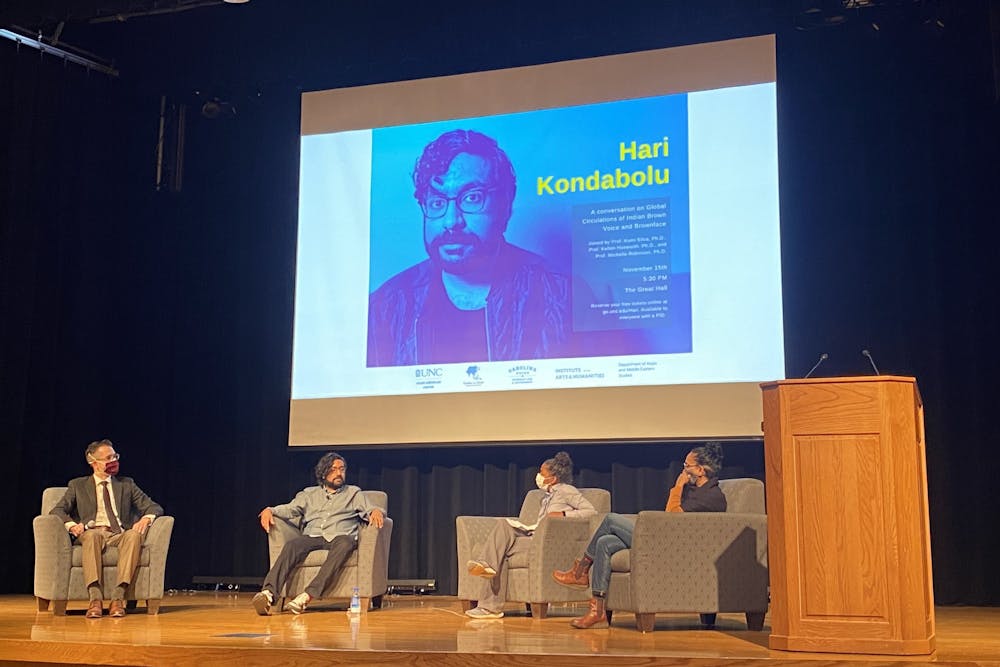Hari Kondabolu, comedian and creator of the documentary “The Problem with Apu,” spoke about the mischaracterization and stereotyping of South Asians in American media and beyond Monday in the Carolina Union's Great Hall.
This discussion was the final event in a Carolina Asia Center series called “From Dave Carson to Apu: Global Circulations of Indian Brown Voice and Brownface," organized by Pamela Lothspeich, coordinator and adviser for South Asia Program, DAMES.
Lothspeich said in an interview with The Daily Tar Heel that she was inspired by Kondabolu’s documentary and her students' shared experiences in organizing this series.
"The Problem with Apu'' discusses the portrayal of an Indian American character in the popular television show, “The Simpsons.'' Apu Nahasapeemapetilon is voiced by white American actor Hank Azaria, who puts on a heavy, stereotypical Indian American accent. Throughout the show, the character also plays into other generalizations.
“He was the only character that existed for a good chunk of my life, definitely throughout my childhood,” Kondabolu said.
Representation in the media
Stereotypical representations of South Asian American television characters can encourage teasing and alienation for the younger generation, Kondabolu said.
First-year Anshu Shah, who attended the event, said that other modern Disney characters like Ravi from "Jessie" and Baljeet from "Phineas and Ferb" continue to portray a similar stereotype to Apu.
Shah said that he was often associated with these characters in elementary and middle school and that these characters affected how other students viewed him and his Indian American friends.



